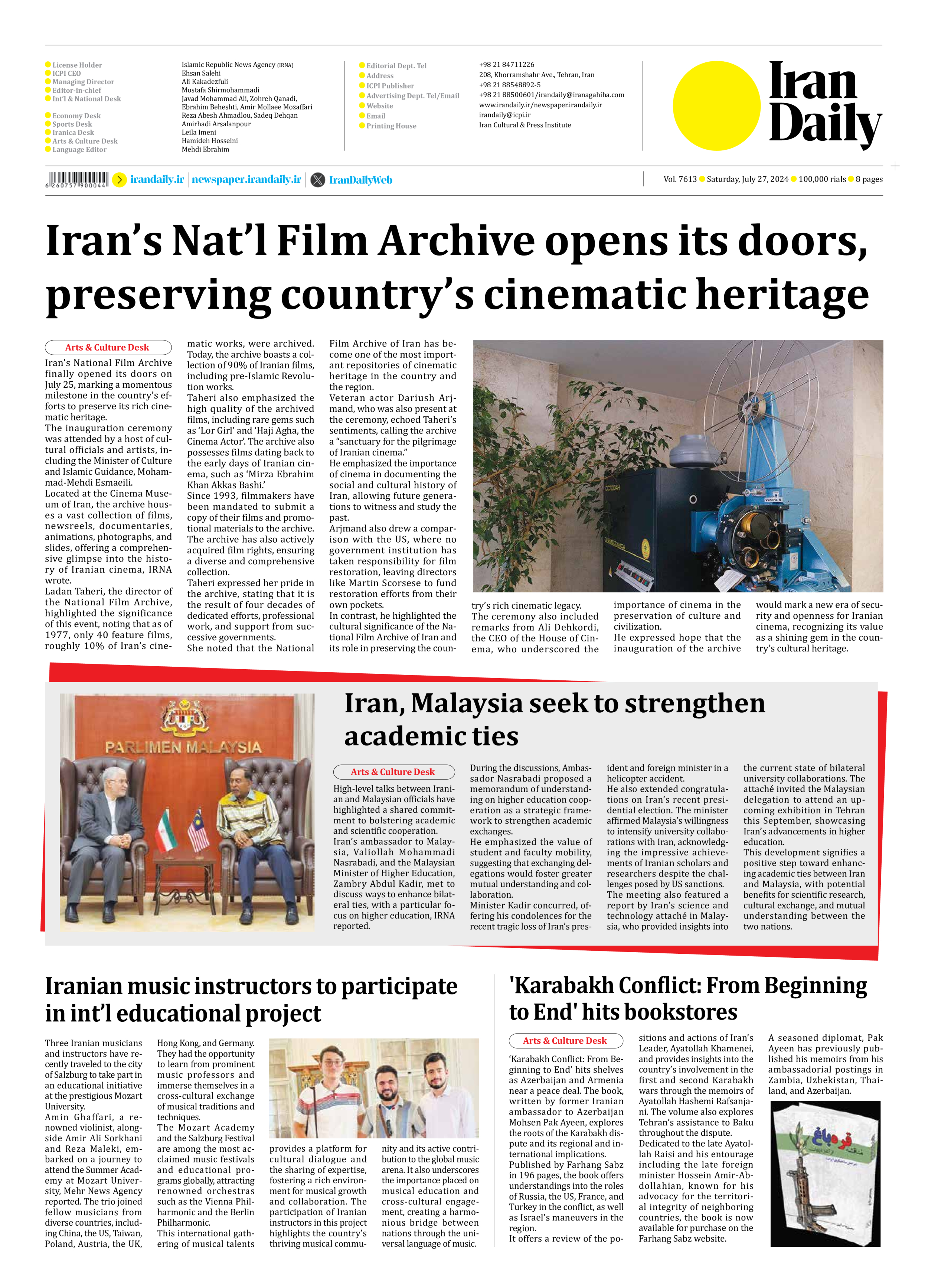
Copy in clipboard...
Iran’s Nat’l Film Archive opens its doors, preserving country’s cinematic heritage
The inauguration ceremony was attended by a host of cultural officials and artists, including the Minister of Culture and Islamic Guidance, Mohammad-Mehdi Esmaeili.
Located at the Cinema Museum of Iran, the archive houses a vast collection of films, newsreels, documentaries, animations, photographs, and slides, offering a comprehensive glimpse into the history of Iranian cinema, IRNA
wrote.
Ladan Taheri, the director of the National Film Archive, highlighted the significance of this event, noting that as of 1977, only 40 feature films, roughly 10% of Iran’s cinematic works, were archived. Today, the archive boasts a collection of 90% of Iranian films, including pre-Islamic Revolution works.
Taheri also emphasized the high quality of the archived films, including rare gems such as ‘Lor Girl’ and ‘Haji Agha, the Cinema Actor’. The archive also possesses films dating back to the early days of Iranian cinema, such as ‘Mirza Ebrahim Khan Akkas Bashi.’
Since 1993, filmmakers have been mandated to submit a copy of their films and promotional materials to the archive. The archive has also actively acquired film rights, ensuring a diverse and comprehensive collection.
Taheri expressed her pride in the archive, stating that it is the result of four decades of dedicated efforts, professional work, and support from successive governments.
She noted that the National Film Archive of Iran has become one of the most important repositories of cinematic heritage in the country and the region.
Veteran actor Dariush Arjmand, who was also present at the ceremony, echoed Taheri’s sentiments, calling the archive a “sanctuary for the pilgrimage of Iranian cinema.”
He emphasized the importance of cinema in documenting the social and cultural history of Iran, allowing future generations to witness and study the past.
Arjmand also drew a comparison with the US, where no government institution has taken responsibility for film restoration, leaving directors like Martin Scorsese to fund restoration efforts from their own pockets.
In contrast, he highlighted the cultural significance of the National Film Archive of Iran and its role in preserving the country’s rich cinematic legacy.
The ceremony also included remarks from Ali Dehkordi, the CEO of the House of Cinema, who underscored the importance of cinema in the preservation of culture and civilization.
He expressed hope that the inauguration of the archive would mark a new era of security and openness for Iranian cinema, recognizing its value as a shining gem in the country’s cultural heritage.







